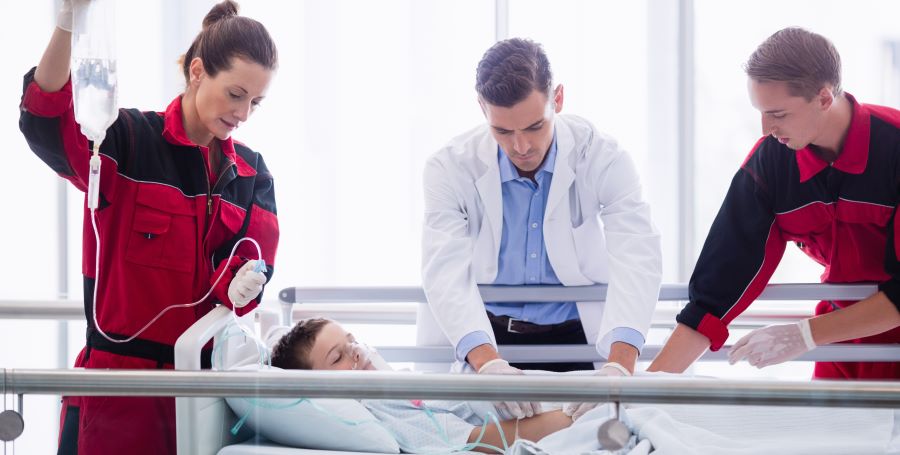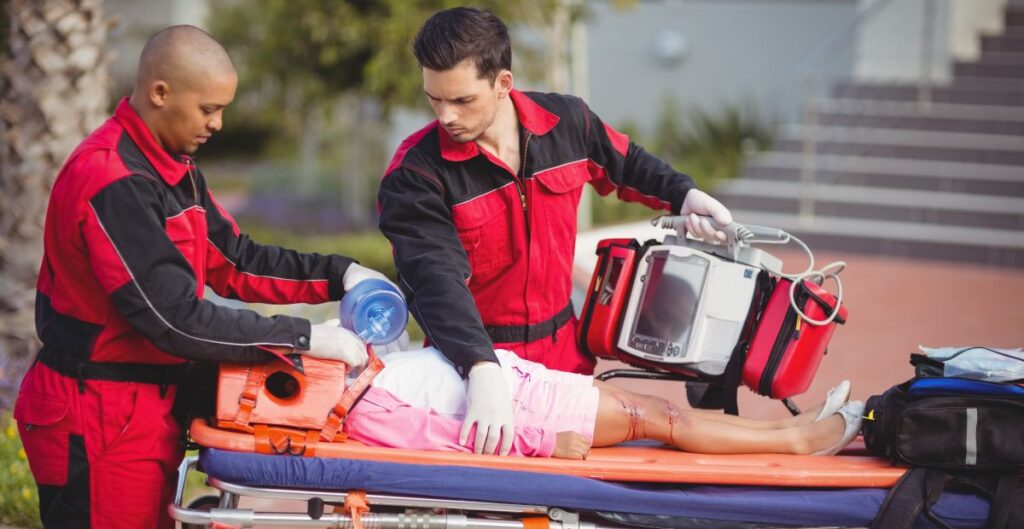Community Medical Service and Essential Drugs: CMS & ED Diploma Course: In rural India, the scarcity of healthcare services is a longstanding issue. Residents often have to travel long distances to access medical treatment, and emergency situations can quickly turn dire due to the absence of immediate healthcare providers. Recognizing this critical need, the Supreme Court of India introduced the CMS & ED (Community Medical Service and Essential Drugs) diploma course, an 18-month program divided into three semesters. This course is a game-changer, training individuals to provide primary healthcare services for common diseases in rural areas. In this blog post, we’ll explore what CMS & ED is all about, its eligibility, duration, syllabus, scope, and more.
Table of Contents
Eligibility
To embark on the CMS & ED journey, you don’t need an extensive educational background. The minimum requirement is a 10th-grade certificate. However, 12th-grade graduates are also eligible. If you’ve already worked in a relevant field, you’re a step ahead. For 10th-grade candidates, two years of work experience are required, while 12th-grade candidates need one year of relevant work experience. The beauty of this course lies in its inclusivity; no specific stream specialization is necessary.
Duration
The CMS & ED diploma course spans approximately 18 months, divided into three semesters. The first two semesters focus on building a strong foundation in the basics of medicine, including human anatomy, physiology, and understanding essential drugs. In the third semester, you’ll undergo a six-month internship, gaining practical experience in applying your knowledge.

Syllabus
here is a more detailed syllabus for the Community Medical Services & Essential Drugs (CMS & ED) course, including the following subjects:
1. Anatomy:
- Structure and function of the human body
- Major organ systems and their roles
- Common medical terminology
- Understanding basic disease processes
- Understanding of the musculoskeletal system, including the bones, muscles, and joints
- Understanding of the nervous system, including the brain, spinal cord, and nerves
- Understanding of the respiratory system, including the lungs, trachea, and bronchi
- Understanding of the circulatory system, including the heart, blood vessels, and blood
- Understanding of the digestive system, including the stomach, intestines, and liver
- Understanding of the excretory system, including the kidneys, bladder, and ureters
- Understanding of the reproductive system, including the male and female reproductive organs
2. Physiology:
- How the human body works
- Functions of the major organ systems
- Processes involved in maintaining homeostasis
- Mechanisms of disease
3. First Aid:
- Basic life support (BLS) skills, including CPR
- Management of common emergencies, such as wounds, fractures, and shock
- Emergency preparedness and response planning
- Prevention and control of infectious diseases
- Emergency childbirth procedures
- First aid for poisoning
4. Pathology:
- Study of diseases and disorders
- Causes of disease
- Signs and symptoms of disease
- Diagnosis of disease
- Treatment of disease
- Prevention of disease
5. Obstetrics & Gynaecology:
- Care of pregnant women and babies
- Management of common obstetrical and gynecological conditions
- Importance of prenatal care
- Signs and symptoms of pregnancy complications, such as preeclampsia and gestational diabetes
- Labor and delivery
- Postpartum care
- Contraception and family planning
- Sexually transmitted infections (STIs)
- Gynecological cancers
6. Practice of medicine:
- Interviewing and examining patients
- Taking a patient’s medical history
- Ordering and interpreting diagnostic tests
- Prescribing and administering medications
- Counseling patients on healthy living practices
- Making referrals to specialists
- Maintaining patient records
- Promoting patient safety
- Communicating effectively with patients and their families
- Advocating for patients
Practical Training:
- Hands-on training in clinical skills, including patient assessment, medication administration, and first aid procedures
- Community outreach and health education projects
- Participation in community health clinics and initiatives
Assessment:
- Written examinations to assess theoretical knowledge
- Practical demonstrations to evaluate clinical skills
- Community-based projects to assess the application of learned skills
Scope
The ‘Community Medical Service and Essential Drugs: CMS & ED Diploma Course’ was conceived to address the pressing healthcare needs of rural communities. Upon successful completion, you become a certified and recognized medical professional, empowered to open your primary healthcare center. In rural and semi-urban areas, your CMS & ED skills become invaluable. You’ll have the capacity to treat basic ailments and prescribe medicines in line with World Health Organization (WHO) recommendations. Job opportunities in both the private and government sectors related to Community Medical Service and Essential Drugs become accessible, giving you a wide range of career options.
Key Highlights
1. Short Duration:
Unlike traditional medical programs that span three to five years, CMS & ED offers an 18-month accelerated route to becoming a healthcare professional.
2. No Specific Stream Specialization:
Embark on a journey into the versatile field of ‘Community Medical Service and Essential Drugs: CMS & ED’ with our comprehensive diploma course. No specific stream specialization is required, as we warmly welcome candidates from diverse educational backgrounds to explore the world of healthcare and essential drugs.
3. Allopathic Medicine Specialization:
Enhance your expertise in allopathic medicine by specializing in Community Medical Service and Essential Drugs CMS & ED Diploma Course, where the focus is on diseases and treatment with essential drugs. Elevate your proficiency in the field of healthcare as you delve into the intricacies of providing specialized medical services.
4. Approved Medical Professional:
Become an accredited and approved medical professional through CMS & ED. Acquire the skills to provide healthcare services and establish medical aid centers upon course completion.
5. Primary Healthcare Center:
“Empower rural communities by establishing a Primary Healthcare Center through Community Medical Service and Essential Drugs CMS & ED Diploma Course. Bridge the healthcare gap in underserved areas and make a meaningful impact on community well-being by delivering essential medical services and promoting health awareness.
6. Learn While Earning:
Tailored for working professionals, the Community Medical Service and Essential Drugs (CMS & ED) course offers an opportunity to upskill while advancing your career in the field. Elevate your expertise without interrupting your professional journey, providing a seamless way to enhance your skills and contribute meaningfully to healthcare.
Mode of Education
The flexibility of CMS & ED education is one of its strengths. It’s suitable for working professionals, offered in a blended format that combines online and offline sessions. Theoretical knowledge is acquired through online learning, while practical skills are honed through offline sessions, ensuring you’re well-prepared for your future role as a healthcare provider.
Academic Fees
The academic fee for CMS & ED typically ranges from Rs. 30,000 to Rs. 45,000, which includes registration fees and tuition expenses. You can pay the fee in a lump sum or opt for semester-wise payments. Many universities offer easy EMI options to help you manage the cost, although the fee structure may vary between institutions.
Why Choose CMS & ED?
CMS & ED isn’t just a course; it’s a gateway to making a meaningful impact on rural healthcare. Its benefits are plentiful:
- Short duration: Get certified in just 18 months, saving time compared to traditional medical courses.
- No specific stream specialization required, making it accessible to a broader audience.
- Allopathic medicine specialization: Gain expertise in essential drugs and their application.
- Become an approved medical professional, enabling you to open your healthcare center.
- Address the shortage of primary healthcare centers in rural areas.
- Learn while earning, as the course is designed for working professionals.
Possible Job Opportunities
Upon completing the CMS & ED diploma course, various job opportunities await:
- Community Health Worker
- Rural Medical Officer
- Generic Medicines Allopathic Practitioner
- General Physician
- Primary Health Care Assistant Pharmacist
- Emergency Health Physician in Rural Areas
- Assistant Doctor
- Health Physician
Conclusion
Community Medical Service and Essential Drugs CMS & ED Diploma Course is a pivotal solution to the healthcare challenges faced by rural communities in India. It empowers individuals to become recognized medical professionals, providing critical primary healthcare services where they are needed most. This diploma course is a beacon of hope for those seeking a fulfilling career in healthcare, with the potential to change lives and communities for the better.

